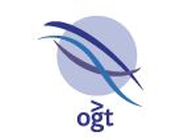Cambridge Consultants helping medical device trials employ Bayesian statistical analysis
Life Sciences
- Date 23 Mar 2010
- Sectors Life Sciences
- Properly implementing advanced statistical methods can deliver shorter, smaller, more effective clinical trials for medical devices
Cambridge Consultants, a leading technology product design and development firm, has announced it is to offer a new consultancy service for medical device clinical trials, saving clients both time and money through a more effective method of analysing trial data. The news follows the announcement of the US Food and Drug Administration’s (FDA) finalised guidance, allowing the use of Bayesian statistical analysis in such trials. The new service is expected to benefit medical device companies looking to quickly comply with the new guidelines, but who do not have the in-house experience of designing and analysing a Bayesian trial.
Already offering companies a wide range of support services in adopting Bayesian methods, Cambridge Consultants new consultancy service is predicted to deliver significant benefits to patients, doctors, trial sponsors and regulators. The new support service includes clinical trial planning and design, analysis of historical data, trial simulation, software development and verification. Support on negotiating with the FDA is also part of the new service, with advice offered on trial planning, developing submissions and creating responses to regulatory questions. Cambridge Consultants’ expertise is based on its long history of developing innovative medical devices and getting them to market quickly, as well as its own use of Bayesian statistical methods in its research and testing.
The FDA issued its guidance on the use of Bayesian statistics in clinical trials in February 2010, enabling companies to take full advantage of the statistical method. This method makes it possible for companies to combine data collected in previous studies with data collected in a current trial. By combining this data, researchers can justify running shorter or smaller clinical trials, ultimately delivering cost savings to the sponsors of the trial. Moreover, both patients and doctors can also benefit from the use of the statistical analysis. For doctors, shorter and more efficient trials mean that they can design trials to look at multiple potential treatment combinations simultaneously and refine the treatments to treat each patient optimally. As a result, the trial participants are more likely to receive effective treatment; shorter trials also mean that new treatments will reach patients, and the wider market, faster.
“The finalised guidance from the FDA has the potential to open the door to a wide ranging streamlining and improvement in clinical trials for medical devices,” commented Paula Gomes of Cambridge Consultants’ Global Medical Technology Practice. “With the wealth of experience Cambridge Consultants has in employing Bayesian methods we can help companies extract the maximum benefit from the technique and deliver smaller, shorter and more cost effective clinical trials.”
Notes for editors:
For further information:
Cambridge Consultants
European PR
USA PR



